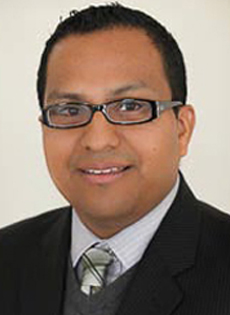
Teaching all God’s children
Monday, July 30, 2018
Peter Ductram
One of the ways Jesus made the kingdom of God manifest in his ministry was around meals. (Jesus was a man after my own heart!) It seems that Jesus was always sharing a meal with others or saying parables about meals.
Father Eugene LaVerdiere, a Bible scholar, tells us that the meals in Jesus’ ministry, especially those on the way to Jerusalem, are “each one a pause that defies, shapes and transforms the most basic values of Christian life in community and in mission.” This is central to the Gospel of Luke. The parable of the great banquet, for example, Chapter 14, verses 15-24, is remarkable because it denotes a complete inversion of form: Those who in the eyes of the world do not belong are to be invited.
Our U.S. Church has taken this vision of the kingdom of God and used it to reflect on our ministry with our brothers and sisters with special needs. One of the documents issued by the U.S. bishops is the landmark 1978 Pastoral Statement on Persons with Disabilities, which was reviewed in 1988 for its 10th anniversary to include more updated language. Then in 1998, on the occasion of its 20th anniversary, the bishops issued a brief statement entitled “Welcome and Justice for People with Special Needs,” which highlighted some of the key points of the pastoral statement.
I would like to look at four important elements that I consider essential in this statement:
First, the bishops begin by quoting Pope John XXIII’s affirmation that every human being is a ‘person’ with universal, inviolable and inalienable rights and duties. (No. 7) Then they state the purpose of this ministry very clearly: Persons with special needs “seek to serve the community and to enjoy their full baptismal rights as members of the Church… There can be no separate Church for people with disabilities. We are one flock that follows a single shepherd.” (No. 33) In other words, baptism gives us rights, among them the right to catechesis.
Second, the bishops tell us that, “The Church finds its true identity when it fully integrates itself” with persons with special needs (No. 12). Regarding the liturgy, they say: “To exclude the members of the parish from these celebrations of the life of the Church, even by passive omission, is to deny them the reality of the community.” (No. 23) It seems that the bishops are saying that the Church is not a complete community of faith unless it fully includes people with special needs.
Third, the bishops remind us that, “The parish is the door to participation for individuals with disabilities, and it is the responsibility of the pastor and lay leaders to make sure that this door is always open.” (No. 18) Keep in mind the word “always” — not when it’s possible or easy for us, but always open.
Finally, in speaking of catechesis, the bishops write: “Evangelization and catechesis for individuals with disabilities must be geared in content and method to their particular situation.” (No. 25)
In the Apostolic Exhortation, Catechesi Tradendae (Of Catechesis in Our Time), St. John Paul II writes that children and young people who are physically or mentally disabled have “a right, like others of their age, to know the mystery of faith.” (No. 41) St. John Paul II, champion of the defense of the dignity of life, was a catechist pope who took seriously the inclusion of people with special needs in the life and mission of the Church.
We can proudly say that the newly approved archdiocesan religious education curriculum includes an intentional approach to what has become known as Adaptive Catechesis.
Have you considered sharing your talents as a catechist? Contact your local parish and inquire about new exciting ways to share the faith.


Comments from readers